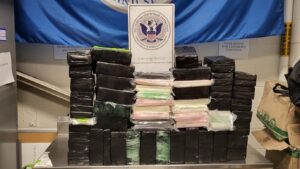WASHINGTON — The U.S. Department of Transportation (DOT) has issued its final rule amending regulations to allow oral fluid testing in its industry drug testing program.
The rule is set to publish on the Federal Register on Tuesday, May 2, and includes additional methodology for drug testing that “will give employers a choice that will help combat employee cheating on urine drug tests and provide a less intrusive means of achieving the safety goals of the program,” according to the DOT.
In order for an employer to implement oral fluid testing under the DOT regulation, the U.S. Department of Health and Human Services will need to certify at least two laboratories for oral fluid testing, which has not yet been done.
The final rule includes other provisions to update the DOT’s regulation “and to harmonize, as needed, with the Mandatory Guidelines for Federal Workplace Drug Testing Programs using Oral Fluid established by the U.S. Department of Health and Human Services.” according to the Federal Register filing.
DOT officials said that oral fluid testing may offer a less time-consuming alternate to existing procedures when an employee cannot produce a sufficient urine specimen – for example, in a “shy bladder” situation or when specimens show evidence of tampering.
Currently, employers must give individuals up to three hours to try producing a urine specimen again.
If an individual still cannot produce a urine sample, the employer must refer the individual to a physician for further evaluation. The rule would allow employers to switch immediately to an oral fluid collection after the first failed attempt. Employers could similarly switch from oral fluid to urine collection if, for example, an employee has a “dry mouth” situation.
“Allowing employers to use oral fluid testing may improve the effectiveness of drug testing,” according to the Federal Register filing. “Oral fluid testing can detect the recent use of some drugs, including marijuana and cocaine, while urine drug testing has a longer window of detection. More effective drug testing could deter employee illicit drug use and reduce safety risks from drug use.”
DOT says that oral fluid testing can reduce anxiety, discomfort and other burdens for individuals undergoing testing because it is less intrusive and time-consuming than urine testing. For example, while most DOT-regulated urine tests are unobserved, a small number require direct observation.
In observed tests, an observer of the same gender as the employee watches the employee urinate into the collection container.
“Allowing the alternative of oral fluid testing would reduce discomfort and other issues for individuals, including potential civil rights issues for transgender or non-binary individuals,” the Federal Register filing states. “Reducing the burdens associated with testing may also reduce barriers to transportation employment for individuals deterred by current testing requirements.”
The Trucker News Staff produces engaging content for not only TheTrucker.com, but also The Trucker Newspaper, which has been serving the trucking industry for more than 30 years. With a focus on drivers, the Trucker News Staff aims to provide relevant, objective content pertaining to the trucking segment of the transportation industry. The Trucker News Staff is based in Little Rock, Arkansas.








